Welcome to WAC 2024!
Theme: Applied Machine Learning and Artificial Intelligence for Autonomous Vehicles in the 21st Century
WAC is an international non-profit technical meeting dedicated to the dissemination of latest information among all nations of the world. It has always prided itself on helping scientists and professionals from economically disadvantaged nations to the meeting to help pave the road between the North and the South. Some of the proceeds of WAC meetings go to the World Students Scholarship Fund, Inc. - a non-profit New Mexico Corporation. This corporation has already raised close to $40K for needy students.
Papers will be submitted via the EDAS system. EDAS
Physical-in-person sessions: Accepted Papers are expected to be presented physically at the event venue. Download WAC CFP
Special Sessions: For more information on proposing a special session at WAC, review the Call for Special Sessions flyer. Download Call for Special Sessions
The WAC Copyright Form is available here: Download Copyright Form
Virtual sessions: Virtual sessions will be opened on September 25, 2024. The presentation video should be submitted in advance. Presenter's videos will be played at the Congress. Any questions from the audience will be sent to the author via email. Download V-WAC CFP
Youth WAC: Youth WAC seeks submissions from school students for up to 2 minute videos on your STEM activities and Ideas. If you have used, are using, or going to use STEM, and you want to tell your story, we have people in over 60 countries who want to hear it!
Youtube: Link
Website: Link
Venue: Iberostar Selection Paraiso Maya Suites, Playa Paraiso Riviera Maya, Mexico
For more information on the venue:
Link
The IBEROSTAR Resort is an ALL-INCLUSIVE property with all food and all drinks included. Participants will fill a form to delete the tax portion of the rate.
Hotel reservation link with WAC special hotel rates:
Link

Important Dates
| Event | Date |
|---|---|
| Regular Papers Due | May 15, 2024 |
| Special Sessions Papers Due | May 15, 2024 |
| Special Sessions of 4 papers Due | May 15, 2024 |
| Acceptance | June 28, 2024 |
| Final manuscripts upload and early registration | Aug. 1, 2024 |
| First Day of WAC 2024 | Sept. 22, 2024 |
| Last Day of WAC 2024 | Sept. 26, 2024 |
Topics in Scope
Smart Cities
Smart Living
Non Binary Computing
Lounge Room Manufacturing
Autonomy & autonomous systems
Human and public health
Covid-19 Pandemics including prediction
Prevention and treatment
Support System for persons with disabilities
Space technologies
Tele-medicine
Analytics & Data Science
Community Safety
Entertainment
Information
Tele-Operation
Education
Tele-Diagnosis
Robotics
Climate Change
Sustainable Manufacturing
Circular Economy
Pandemic resilience in air transportation systems
System of systems - An framework for understanding advancement of Human Health amidst massive diversity
Models of community response to health care delivery innovations
Telemedicine
AI-CAD (computer-aided-diagnosis)
Social simulation
Home health care technologies
Predictive medicine
Smart healthcare
IOT based medical devices
Cybersecurity
Cyber Physical systems
Smart factories
Smart homes
Industry 4.0
Autonomous reconfiguration and AI
Data Centers and Network systems
Manufacturing and automation big data analytics for medical records
Artificial intelligence for medical imaging
And mining medical literature with deep learning and natural language processing techniques. Situational awareness and Cyber security
Cyber-crime defense and forensics
Next generation cellular network fraud and security
AI for Security and Security for AI
Intrusion Detection and Fraud Detection
Security and Privacy for E-Health, E- Payments, E-Voting, E-Commerce
Security and Privacy for Blockchain and Cryptocurrencies
Anti-malware techniques: detection, analysis, and prevention
Smart-remanufacturing
Supply Chain Resilience
Transfer Learning
Variable structure systems
Finite-time convergent algorithms, Embedded Vision and Ambient Intelligence
Mechatronics and Embedded Systems Education
Biomedical engineering
Renewable energy
Bioprocesses
Neural anomaly detection and networks
Intelligent control (neural networks, fuzzy systems and neurofuzzy)
Fault detection and diagnosis
Real time control applications
Nanoparticles
Biomaterial
Tracks and Special Sessions
Tracks
Robotics and Automation
- Chair: Dr. Kazuo Kiguchi
Cybersecurity
- Chair: Dr. Ilsun You
Machine learning, Big Data Analytic and deep learning, Systems intelligence powered by big data
- Chair: Zheng Xu
Cyber Physical systems, smart factories, smart homes, industry 4.0
- Chair: Jenq-Haur Wang
Mechatronics, Mechatronics and applications, and Energy
- Chair: Dr. Ben Horan
Autonomous Reconfiguration and AI
- Chair: Mohammad Rajabali Nejad
Data Centers and Network Systems
- Chair: Montri Wiboonrat
Manufacturing and Automation
- Chair: Nguyen Dinh Duc
Special Sessions
Fault Tolerance Control using Machine Learning Techniques
- Organizer: Jesús A. Medrano Hermosillo
- Organizer: Larbi Djilali
Advancing Bioprocess Control through Machine Learning Techniques
- Organizer: Abraham Efraím Rodríguez Mata
- Organizer: José Antonio Ruz Hernández
Intelligent Systems and Technologies in Healthcare and Rehabilitation
- Organizer: Tadamitsu Matsuda
- Organizer: Dr. Takenori Obo
Artificial Intelligence for Cyber Physical Systems
- Organizer: Alma Alanis
- Organizer: Luis J. Ricalde
Early Human Disease Screening Studies using Hypothesis-driven and Data-driven Approaches
- Organizer: Hiroharu Kawanaka
- Organizer: Takumi Kitajima
- Organizer: Emi Yuda
Modern technologies with applications in biology
- Organizer: Abraham Alvarado
- Organizer: Oscar D. Sanchez
Deep Learning Applied to Manufacturing and Digital Twins
- Organizer: Wenjun Xu
- Organizer: Jun Huang
- Organizer: Dr. Michael S Packianather
Application of AI-assisted systems to real-world data
- Organizer: Kento Morita
- Organizer: Kentaro Mori
WAC 2024 is Jointly Dedicated To
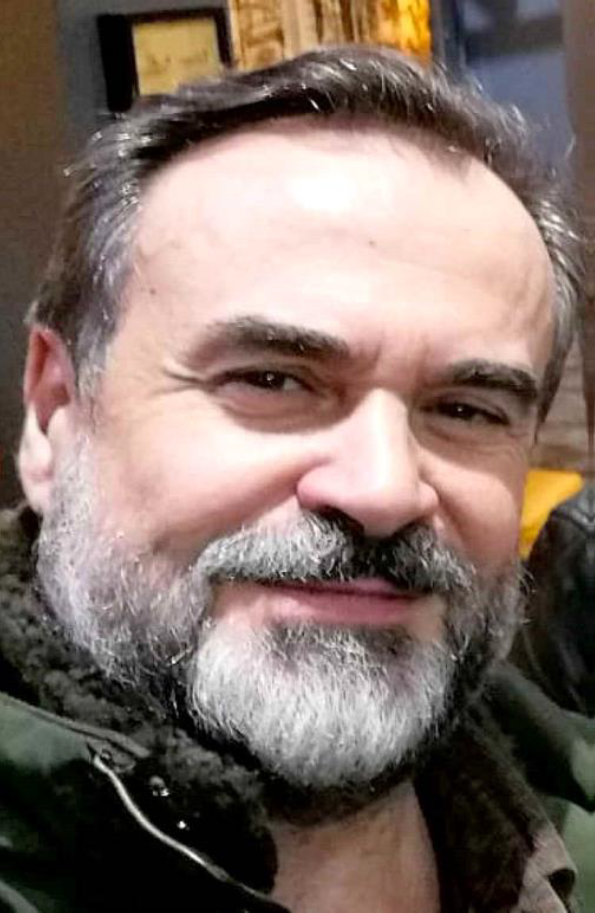
Diego Andina
WAC Honoree
Universidad Politécnica de Madrid
Spain
Download Flyer
Bio: Diego Andina (Full Prof., IEEE Senior Member), was born in Madrid, Spain, and works for Universidad Politécnica de Madrid (UPM), where he previously received two Master's degrees (1990) and a Doctorate with honors in 1995. He currently heads a Research Group interested in Interdisciplinary Applications of Artificial Intelligence, Biomimetics and System of Systems Engineering, receiving numerous international awards and recognitions for his novel contributions and business technology transfer proposals. He is author or co-author of more than 350 national and international publications, registered several patents and directed more than 60 R&D projects financed by National and Local Governments, the European Commission and private Institutions and Companies. He is also an associate editorial member of several top international research journals and transactions and has participated in the organization of more than 50 international research, innovation and technology transfer events. He is passionate about Entrepreneurship and Multidisciplinarity, having founded the Latin American Cooperation Network for Intelligent Automation and Control, the UNITOD Universitary Union and several Spinoffs at the National and International level.
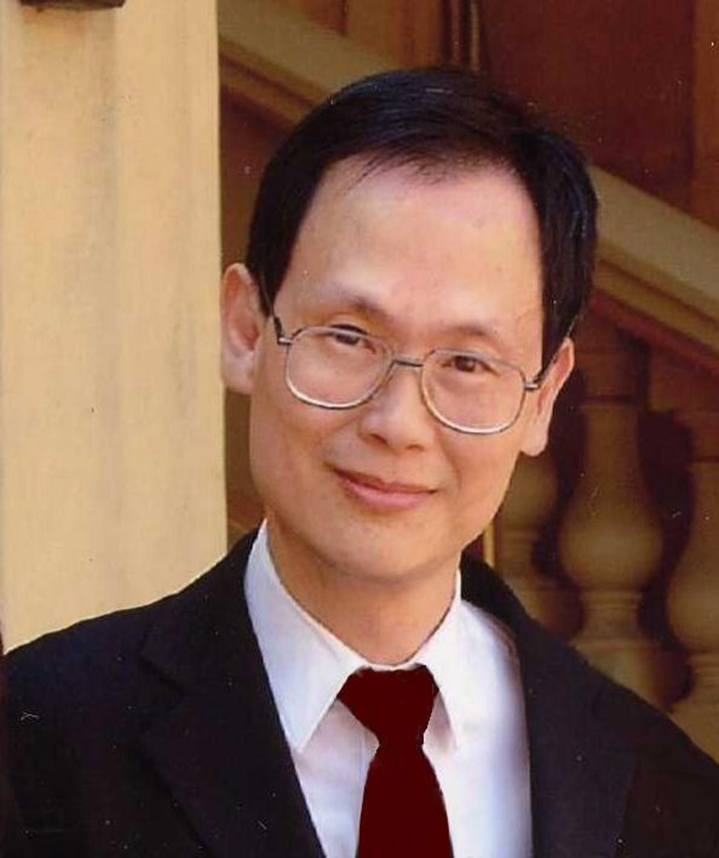
Duc Truong Pham
WAC Honoree
University of Birmingham
England
Download Flyer
Bio: Duc Truong Pham OBE, FREng, FLSW, FSME, BE, PhD, DEng, CEng, FIET, FIMechE, SFHEA Chance Professor of Engineering, University of Birmingham, England Duc Truong Pham’s research covers the fields of mechanical, manufacturing, computer and systems engineering. His academic output includes more than 600 technical papers and 17 books. He has supervised over 100 PhD theses to completion. He has won in excess of £30M in external research grants and contracts. In addition to pursuing and leading research, he has acted as a consultant to several major companies and has been active with knowledge transfer to industry, applying the results of his work to help multinational companies and SMEs generate wealth and create and safeguard jobs. He has lectured extensively abroad on his research and has delivered more than fifty keynote presentations at international conferences. He was Professeur Invité at École Centrale de Paris, Consulting Professor at HUST (China), Erskine Visiting Fellow at the University of Canterbury (New Zealand), Visiting Professor at the Université Paul Verlaine (France), Visiting Professor at King Saud University (Saudi Arabia), Strategic Scientist at Wuhan University of Technology and Honorary Professor at Xi’an Jiaotong University (China). He is the founding editor of the Springer Series in Advanced Manufacturing, the founding editor-in-chief of Cogent Engineering and the editor-in-chief of the International Journal on Interactive Design and Manufacturing. He has received several prizes including the Sir Joseph Whitworth prize from the Institution of Mechanical Engineers in 1996 and 2000 and the Institution's Thomas Stephens Group Prize in 2001 and 2003 and Donald Julius Groen Prize in 2004, and the 5th ICMR Best Paper Prize in 2007. He is also a recipient of a Lifetime Achievement Award (2016, World Automation Congress) and a Distinguished International Academic Contribution Award (IEEE SMC Society TC on Enterprise Info Sys and IFIP TC8 WG8.9, 2017) He is a Fellow of the Royal Academy of Engineering, Learned Society of Wales, Society of Manufacturing Engineers, Institution of Engineering and Technology, and Institution of Mechanical Engineers. He was made an OBE in the 2003 New Year's Honours List for his services to Engineering.
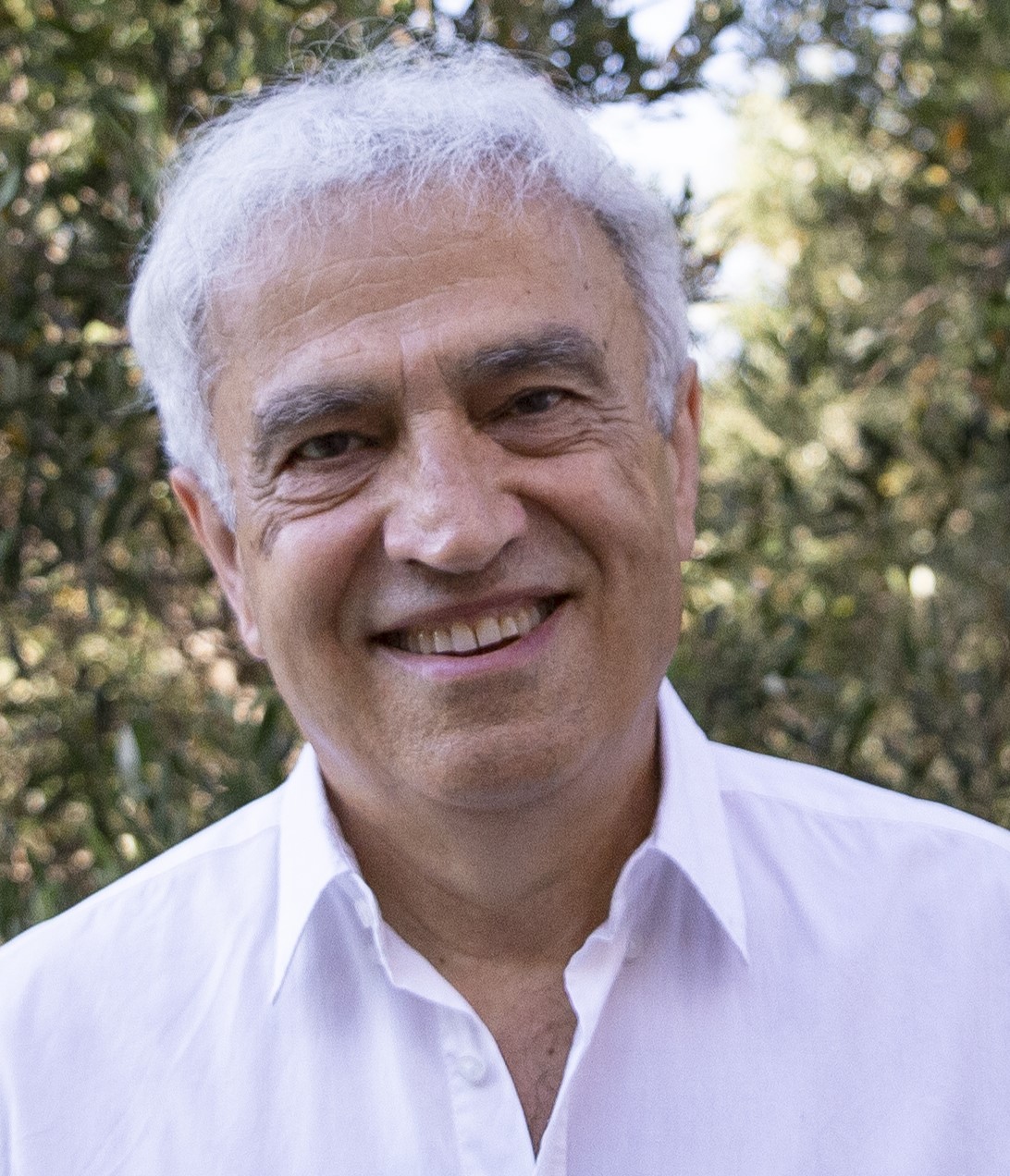
Yannis A. Phillis
WAC Honoree
Technical University of Crete
Greece
Download Flyer
Bio: Yannis A. Phillis is professor emeritus and former rector at the Technical University of Crete. He received his diploma in electrical and mechanical engineering from the National Technical University of Athens, Greece, in 1973 and the M.S., Engineer Degree, and Ph.D. degrees from the University of California at Los Angeles (UCLA) in control systems in 1978, 1979, and 1980 respectively. From 1980 to 1986, he was assistant professor at Boston University, Boston, MA. Since 1986, he has been with the School of Production Engineering and Management, Technical University of Crete, Chania, Greece where he was rector for 12 years and past director of the CAM Laboratory. In 1992 and between 2005 and 2007 he was visiting professor at UCLA’s Chemical Engineering Department. In 2008 he was Onassis Foundation Senior Visiting Fellow in the US. In 2013-2014 he was Prometeo Senior Research Fellow in Riobamba, Ecuador. His research interests are in stochastic control, manufacturing, sustainability, and climate change. Dr. Phillis is a member of the editorial board of several technical journals. He is the recipient of numerous honors among which Harry Kurnitz Literary Award at UCLA, 1978 and 1979; Professor of the Year Award at Boston University, 1986; Award by the Academy of Athens for creating the 80-acre Park for the Preservation of Flora and Fauna at the Technical University of Creter, 2007; Fellow of the Venizelos Research Institute in Greece, 2006; Awards by the Municipalities of Chania and Assini, Greece in 2005 and 2008 respectively for his service to society, science, and letters; Lifetime Achievement Award at the World Automation Congress 2010, Kobe, Japan; and Academic Alumni Professional Achievement Award, UCLA, 2013. He has published over 130 scientific papers, several technical books, and fifteen poetry collections and novels. He is an award-winning writer in Greece and the US. He is a Fellow of AAAS; Fellow of the European Academy of Sciences; Member of the European Academy of Sciences and Arts; Member of Poets and Writers, USA; and Member of the P.E.N. Club. Website: www.phillis.tuc.gr
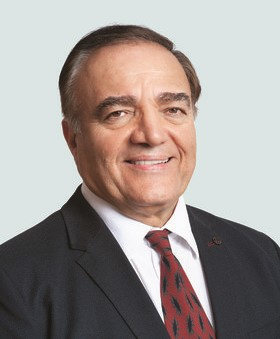
Fred Hadaegh
WAC Honoree
California Institute of Technology
USA
Download Flyer
Bio: Dr. Hadaegh is a Research Professor of Aerospace at Caltech. He earned his Ph.D. in Electrical Engineering from the University of Southern California in 1984, after which he embarked on a career at the NASA Jet Propulsion Laboratory (JPL), NASA’s lead center for robotic space exploration. Dr. Hadaegh held various technical and leadership positions at JPL for nearly four decades, including a member of the JPL senior leadership, of the Executive Council, and held the position of Chief Technologies until June of 2022. He was also the head of the Guidance and Control (G&C) Technology Program and the G&C Analysis and Group. In this capacity, he spearheaded cutting-edge research in guidance, estimation, and control theory while developing advanced algorithms and software for planetary science and astrophysics missions. He developed Guidance and Control technologies for spacecraft formation flying, autonomous rendezvous, and docking, playing a crucial role in various NASA missions and Department of Defense programs. Dr. Hadaegh has been the Principal Investigator for numerous R&D programs, research tasks, and flight experiments. His primary research interests revolve around optimal estimation and robust control of dynamical systems, with a particular focus on autonomous distributed spacecraft systems. Dr. Hadaegh has been recognized as a Technical Fellow and Senior Research Scientist at JPL and as a Life Fellow of the Institute of Electronics and Electrical Engineers (IEEE) and Fellow of the American Institute of Aeronautics and Astronautics (AIAA). His accolades include NASA's Exceptional Achievement and Exceptional Service Medals and JPL's Award of Excellence for "Flight Validation of Autonomous Rendezvous in Earth Orbit." Furthermore, he received AIAA's 2021 Mechanics and Control of Flight Award and the World Automation of Congress Award. His research contributions include mathematical modeling of uncertain systems, parameter identifiability of dynamical systems, identification, and control of large space structures, and autonomous control of single and distributed spacecraft systems.
WAC 2024 Lifetime Achievement Award Honorees
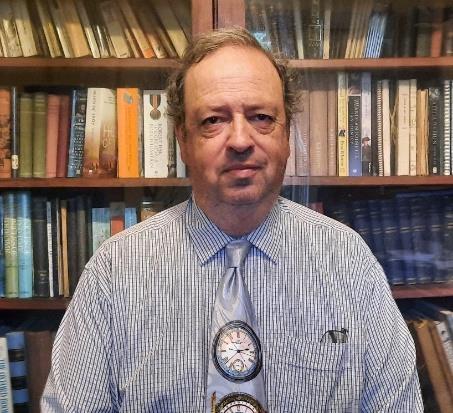
Anthony Nolan
WAC Lifetime Achievement Award
Independent Consultant
Australia
Download Flyer
Bio: Tony Nolan is a data mathematician, futurist, profiler, inventor, musician, artist, and author. He also works with horses, plays several sports, believes in God, and supports his local communities. Tony scored a perfect score on an IQ test, and received an Order of Australia Medal for serviced to the Australian Community, a fellow in the Institute of Analytics Profession Australia, and a Horary Fellowship from the Teachers Guild of NSW. Tony has a mixed race background, which includes Australian, British, Dalmatian, French, Irish, Persian, and Scandinavian. Tony also has ADHD, Asperger’s, and Dyslexia. Tony’s research and invention focuses on the areas of Artificial Life, Astronomy, Cognition, Data Science, Decision Sciences, Fuzzy Logic, Gamification, Information Science, Interval Math, Gap Analysis, Mathematics, Non-Binary Computing, Predictive Modelling, Quazi Fractals, Profiling, Relativity, Risk Analysis, System of Systems, Sentient Analysis, Symbiotic Relativity, Text Analysis, Time, and Writing. Tony has invented: Nolan’s Mathematics, an axis offset which allows the properties of binary to be applied to interval and ratio numbers, a digital hash (Discrete Cosine Transformation), a text message obscuration system, a Universe Interconnection of Things model, CogKnowlogy, Hyperpanometrics, Deep Fuzzy Logic (formally 3d Fuzzy Logic), System of System Gap Relativity, and a Relative Fuzzy Logic Time Series Forecasting Tool. Tony’s latest innovations are in new ways to map risk (PreSystemNation), Predictive Fuzzy Moving Averages, and the base unit for all data & decision modelling (the Energy Brick).
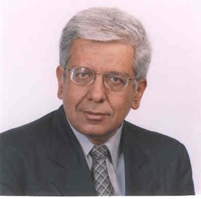
Edgar Sanchez
WAC Lifetime Achievement Award
CINVESTAV-IPN
Mexico
Download Flyer
Bio: Edgar N. Sanchez was born in 1949, in Sardinata, Colombia, South America. He obtained the BSEE, major in Power Systems, from Universidad Industrial de Santander (UIS), Bucaramanga, Colombia in 1971, the MSEE from CINVESTAV-IPN (Advanced Studies and Research Center of the National Polytechnic Institute), major in Automatic Control, Mexico City, Mexico, in 1974 and the Docteur Ingenieur degree in Automatic Control from Institut Nationale Polytechnique de Grenoble, France in 1980. In 1971, 1972, 1975 and 1976, he worked for different Electrical Engineering consulting companies in Bogota, Colombia. In 1974 he was professor of Electrical Engineering Department of UIS, Colombia. From January 1981 to November 1990, he worked as a researcher at the Electrical Research Institute, Cuernavaca, Mexico. He was a professor of the graduate program in Electrical Engineering of the Universidad Autonoma de Nuevo Leon (UANL), Monterrey, Mexico, from December 1990 to December 1996. From January 1997 to December 2022, he was with CINVESTAV-IPN, Guadalajara Campus, Mexico, as a Professor of Electrical Engineering graduate programs. Now he is a Retired Professor of CINVESTAV-IPN, Guadalajara Campus, Mexico. His research interest center in Neural Networks and Fuzzy Logic as applied to Automatic Control systems. He has been the advisor of 15 Ph. D. thesis and 38 M. Sc Thesis. He was granted an USA National Research Council Award as a research associate at NASA Langley Research Center, Hampton, Virginia, USA (January 1985 to March 1987). He is also member of the Mexican National Research System (promoted to highest rank, III, in 2005), the Mexican Academy of Science and the Mexican Academy of Engineering. He has published 4 books, more than 150 technical papers in international journals and conferences, and has served as reviewer for different international journals and conferences. He has also been member of many international conferences IPCs, both IEEE and IFAC ones.

Maj Mirmirani
WAC Lifetime Achievement Award
USA
Download Flyer
Bio: Dr. Maj Mirmirani received his Ph.D. and M.S. in Mechanical Engineering from the University of California, Berkeley, and his B.S. in Mechanical Engineering from Tehran Polytechnic (Amir Kabir University). Prior to starting his career in the United States in 1981, he spent a year at the Imperial College of Science and Technology’s Department of Electrical Engineering in London as an academic visitor working on the development of a 64-lead electrocardiography (EKG). In 1981, he joined the California State University, Los Angeles’s (CSULA) Department of Mechanical Engineering, where he served as department chair for 12 years. At CSULA, he founded and directed the Air Force Office of Scientific Research (AFOSR)-funded Multidisciplinary Flight Dynamics and Control Lab and was also one of the two co-directors of the NASA-funded University Research Center (SPACE Center). During his tenure at CSULA, he led several major research projects totaling to over $20M in funding. Most notable among them were the pioneering work on modeling, simulation, and control of airbreathing hypersonic flight vehicles; design and development of a high-endurance hydrogen fuel cell-powered UAV (the first such university-built vehicle to fly https://www.youtube.com/watch?v=C1VyUmdg4iA ); design and fabrication of a full-scale precision segmented reflector testbed with shape control and pointing accuracy requirement comparable to a space-based system (a precursor to the J.W. Web); as well as development of a control-oriented multidisciplinary software package for aerospace systems design a project funded by AFOSR. While at CSULA, he also spent two summers at the National Institute of Health’s Division of Mathematical Biology working on mathematical modeling for optimal delivery of monoclonal antibodies in treatment of cancer.
WAC 2024 Young Achievement Award Honorees
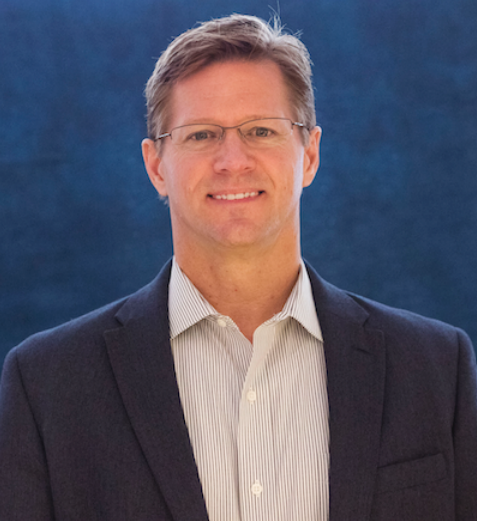
Jeff Prevost
WAC Young Achievement Award
The University of Texas at San Antonio
USA
Download Flyer
Bio: Dr. John Jeffery Prevost attended Texas A&M University and received an undergraduate degree. At the University of Texas at San Antonio he completed his masters and Ph.D. He began his career in the tech industry, working for 15 years before pursuing an academic career. During his industry career, he worked in many different positions, serving in roles such as a chief consultant, Director of Information Systems, Director of Product Development, and Chief Technical Officer. He began his professional academic journey in 2013 as a professor of research. In 2015, he co-founded and became the Chief Research Officer and Assistant Director of the Open Cloud Institute, where he currently serves as its Executive Director. In 2016, after serving as a professor of research, he received his appointment as an Assistant Professor. He currently serves as the Cloud Technology Endowed Associate Professor in the Electrical and Computer Engineering Department at UTSA. He currently also serves as the VP for Secure Cloud Architecture for the Cyber Manufacturing Innovation Institute (CyManII). At CyManII, he is co-lead for the Shared Research and Development Infrastructure foundational team. Working with on behalf of the needs of hisindustry connections, he established the Graduate Certificate in Cloud Computing, which officially began in 2017. Again, working with local tech leaders he created the Catalyst Lab, an internship program for Graduate Students at UTSA. He remains an active consultant in areas of complex systems and cloud computing and continues to maintain strong ties with industry leaders. His is a member of Tau Beta Pi, Phi Kappa Phi and Eta Kappa Nu Honor Societies, and is a Senior Member of IEEE. His current research interests include secure and scalable real-time IoT, applied machine learning, and applications of quantum algorithms.
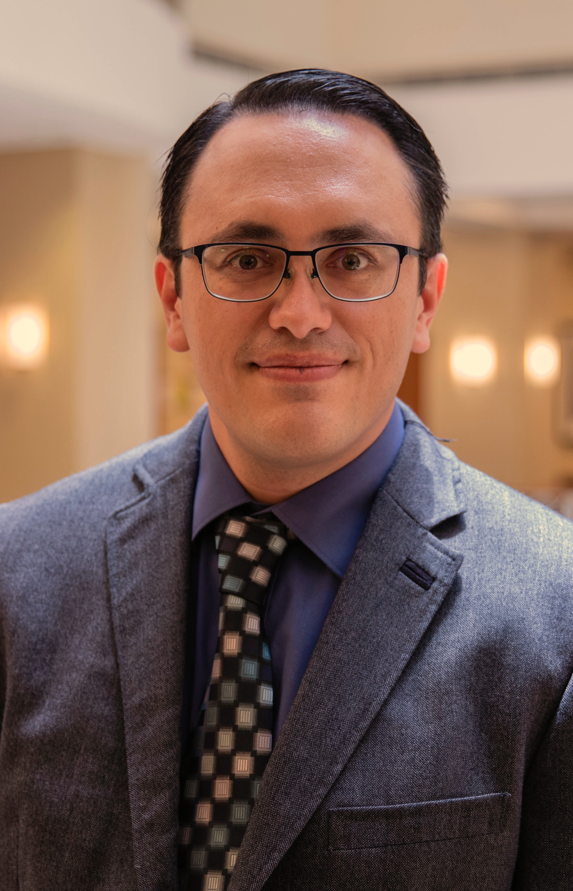
Patrick Benavidez
WAC Young Achievement Award
The University of Texas at San Antonio
USA
Download Flyer
Bio: Dr. Patrick Benavidez received the B.S., M.S and PhD degrees in electrical engineering from the University of Texas at San Antonio in 2007, 2010 and 2015 respectively. Dr. Benavidez is a Senior Systems Engineer at Radiance Technologies and an adjunct Assistant Professor of Instruction with The University of Texas at San Antonio in the Electrical Engineering Department. He was an assistant professor of research and instruction at The University of Texas at San Antonio advising professors, students, and fellow researchers on various interests including single robot control, multi-robot control, communication, cloud computing, smart devices, IoT, and AI problems. In 2022, he received an Innovation Award from UTSA and the Texas Senate for a now patented AI camera system built for a contract with Bank of America. The College of Engineering awarded him a Community Engagement Award in 2021 for organizing student teams to volunteer at local STEM events hosted by schools and partner organizations throughout the city. During the pandemic, Dr. Benavidez proctored the hybrid online/in-person senior design capstone courses for Electrical and Computer Engineering Department and was a critical enabler for students to complete their integrated hardware/software projects. Several of his teams received top awards at college level competitions, and a regional multi-state competition between colleges with ECE programs. Dr. Benavidez was Co-PI on UTSA’s part of a 6 year, $6M AFRL Center of Excellence in Autonomy Grant. He was PI on a contract to develop a machine learning system for a security application. In 2019 and 2020, Dr. Benavidez led student teams on competitive awards for two US Army RDECOM HBCU/MI Student Design Competitions. Dr. Benavidez was an invited judge for the 2017 UAE Awards for Good in Robotics and Drones. During his MS and PhD, he mentored and collaborated with numerous students in robotics, who are now employed in top companies for autonomous systems. He also provided tours to potential future students of UTSA for the College of Engineering to raise awareness in STEM programs.
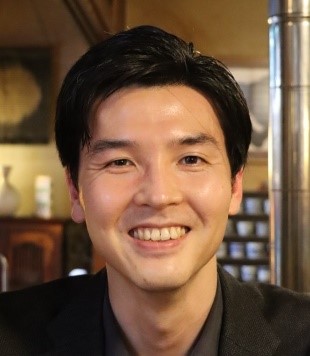
Takenori Obo
WAC Young Achievement Award
Tokyo Metropolitan University
Japan
Download Flyer
Bio: Takenori Obo is currently an assistant professor at the Department of Mechanical Systems Engineering, Tokyo Metropolitan University, Japan. He received the B.E., M.E. and D.E. degrees from Tokyo Metropolitan University in 2009, 2011, 2014, respectively. His current interests include computational intelligence for healthcare systems, rehabilitation support systems, intelligent robots, and applications in human centric systems. He has published 17 journal papers and 75 conference proceeding papers and has received 9 awards, including best paper award on WA2012. In WAC, he has also organized 4 special sessions , and contributed a total of 7 papers since 2010.
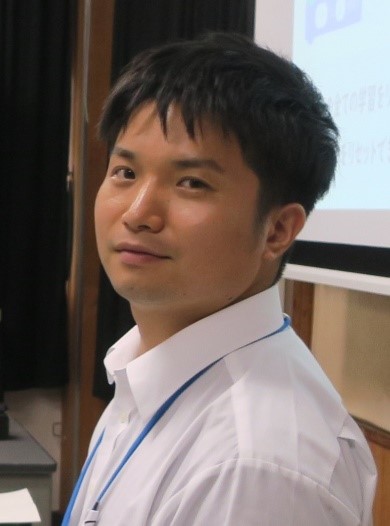
Kentaro Mori
WAC Young Achievement Award
National Institute of Technology (KOSEN), Maizuru College
Japan
Download Flyer
Bio: Dr. Kentaro Mori is a dedicated researcher specializing in Medical Image Analysis, currently affiliated with National Institute of Technology (KOSEN), Maizuru College. Holding a Ph.D. in Simulation Studies from University of Hyogo in 2021, their research focuses on the application of deep learning to support medical image diagnosis. Dr. Kentaro has made significant contributions to the elucidation of the relationship between uterine motility and female infertility from the field of information science, aiming to improve success rate of infertility treatment. In addition to infertility, he is involved in research on medical diagnostic support for a wide range of other areas, including heart failure, cancer treatment, etc. After 2020, he is working on the development of a new educational system at KOSEN, utilizing technologies such as AR, VR, posture estimation, and hand tracking. He has developed an education system for the disabled that utilizes VR and a system that automatically evaluates practical skills based on hand movements using hand tracking technology.
WAC 2024 Keynotes
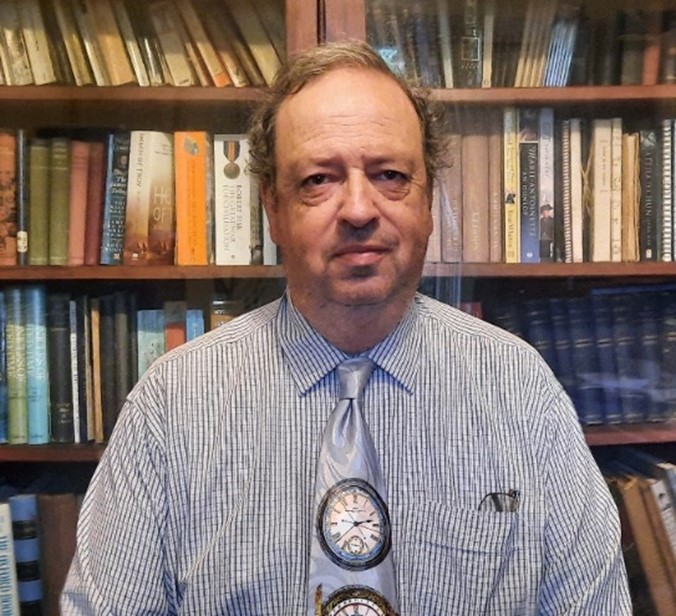
Anthony Nolan
WAC
Lifetime Achievement
Keynote
Independent Consultant
Australia
Download Flyer
Omniunify, predicting the reality of everything.
Abstract: All things take the form of combinations involving entities and systems, shaped by various contexts, irrespective of their physical, cognitive, or action-oriented existence. We convert randomness into discernible cause-and-effect relationships. Every element is intricately connected both internally and externally through hierarchical relationships, with memberships outlined by a nuanced understanding of fuzzy logic relativity. Nothing stands alone as uniquely individual or entirely generic; rather, everything represents a complex history of activities spanning time and space, where intricacy arises from combinations of fundamental commonalities. Each element is assigned a name within a knowledge classification index, and all existences are systematically organized in a graphical database. The inputs and outputs of each entity provide a range of options for actions, as prediction becomes possible through the patterns.
Bio: Tony Nolan is a data mathematician, futurist, profiler, inventor, musician, artist, and author. He also works with horses, plays several sports, believes in God, and supports his local communities. Tony scored a perfect score on an IQ test, and received an Order of Australia Medal for serviced to the Australian Community, a fellow in the Institute of Analytics Profession Australia, and a Horary Fellowship from the Teachers Guild of NSW. Tony has a mixed race background, which includes Australian, British, Dalmatian, French, Irish, Persian, and Scandinavian. Tony also has ADHD, Asperger’s, and Dyslexia. Tony’s research and invention focuses on the areas of Artificial Life, Astronomy, Cognition, Data Science, Decision Sciences, Fuzzy Logic, Gamification, Information Science, Interval Math, Gap Analysis, Mathematics, Non-Binary Computing, Predictive Modelling, Quazi Fractals, Profiling, Relativity, Risk Analysis, System of Systems, Sentient Analysis, Symbiotic Relativity, Text Analysis, Time, and Writing. Tony has invented: Nolan’s Mathematics, an axis offset which allows the properties of binary to be applied to interval and ratio numbers, a digital hash (Discrete Cosine Transformation), a text message obscuration system, a Universe Interconnection of Things model, CogKnowlogy, Hyperpanometrics, Deep Fuzzy Logic (formally 3d Fuzzy Logic), System of System Gap Relativity, and a Relative Fuzzy Logic Time Series Forecasting Tool. Tony’s latest innovations are in new ways to map risk (PreSystemNation), Predictive Fuzzy Moving Averages, and the base unit for all data & decision modelling (the Energy Brick).
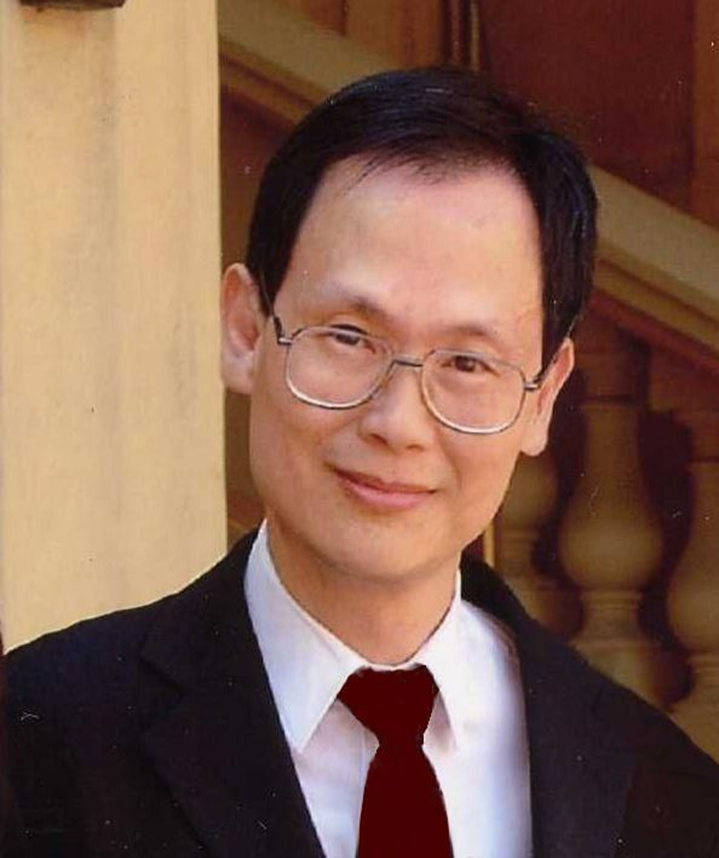
Duc Truong Pham
WAC
Honoree
Keynote
University of Birmingham
England
Download Flyer
Bio: Duc Truong Pham OBE, FREng, FLSW, FSME, BE, PhD, DEng, CEng, FIET, FIMechE, SFHEA Chance Professor of Engineering, University of Birmingham, England Duc Truong Pham’s research covers the fields of mechanical, manufacturing, computer and systems engineering. His academic output includes more than 600 technical papers and 17 books. He has supervised over 100 PhD theses to completion. He has won in excess of £30M in external research grants and contracts. In addition to pursuing and leading research, he has acted as a consultant to several major companies and has been active with knowledge transfer to industry, applying the results of his work to help multinational companies and SMEs generate wealth and create and safeguard jobs. He has lectured extensively abroad on his research and has delivered more than fifty keynote presentations at international conferences. He was Professeur Invité at École Centrale de Paris, Consulting Professor at HUST (China), Erskine Visiting Fellow at the University of Canterbury (New Zealand), Visiting Professor at the Université Paul Verlaine (France), Visiting Professor at King Saud University (Saudi Arabia), Strategic Scientist at Wuhan University of Technology and Honorary Professor at Xi’an Jiaotong University (China). He is the founding editor of the Springer Series in Advanced Manufacturing, the founding editor-in-chief of Cogent Engineering and the editor-in-chief of the International Journal on Interactive Design and Manufacturing. He has received several prizes including the Sir Joseph Whitworth prize from the Institution of Mechanical Engineers in 1996 and 2000 and the Institution's Thomas Stephens Group Prize in 2001 and 2003 and Donald Julius Groen Prize in 2004, and the 5th ICMR Best Paper Prize in 2007. He is also a recipient of a Lifetime Achievement Award (2016, World Automation Congress) and a Distinguished International Academic Contribution Award (IEEE SMC Society TC on Enterprise Info Sys and IFIP TC8 WG8.9, 2017) He is a Fellow of the Royal Academy of Engineering, Learned Society of Wales, Society of Manufacturing Engineers, Institution of Engineering and Technology, and Institution of Mechanical Engineers. He was made an OBE in the 2003 New Year's Honours List for his services to Engineering.
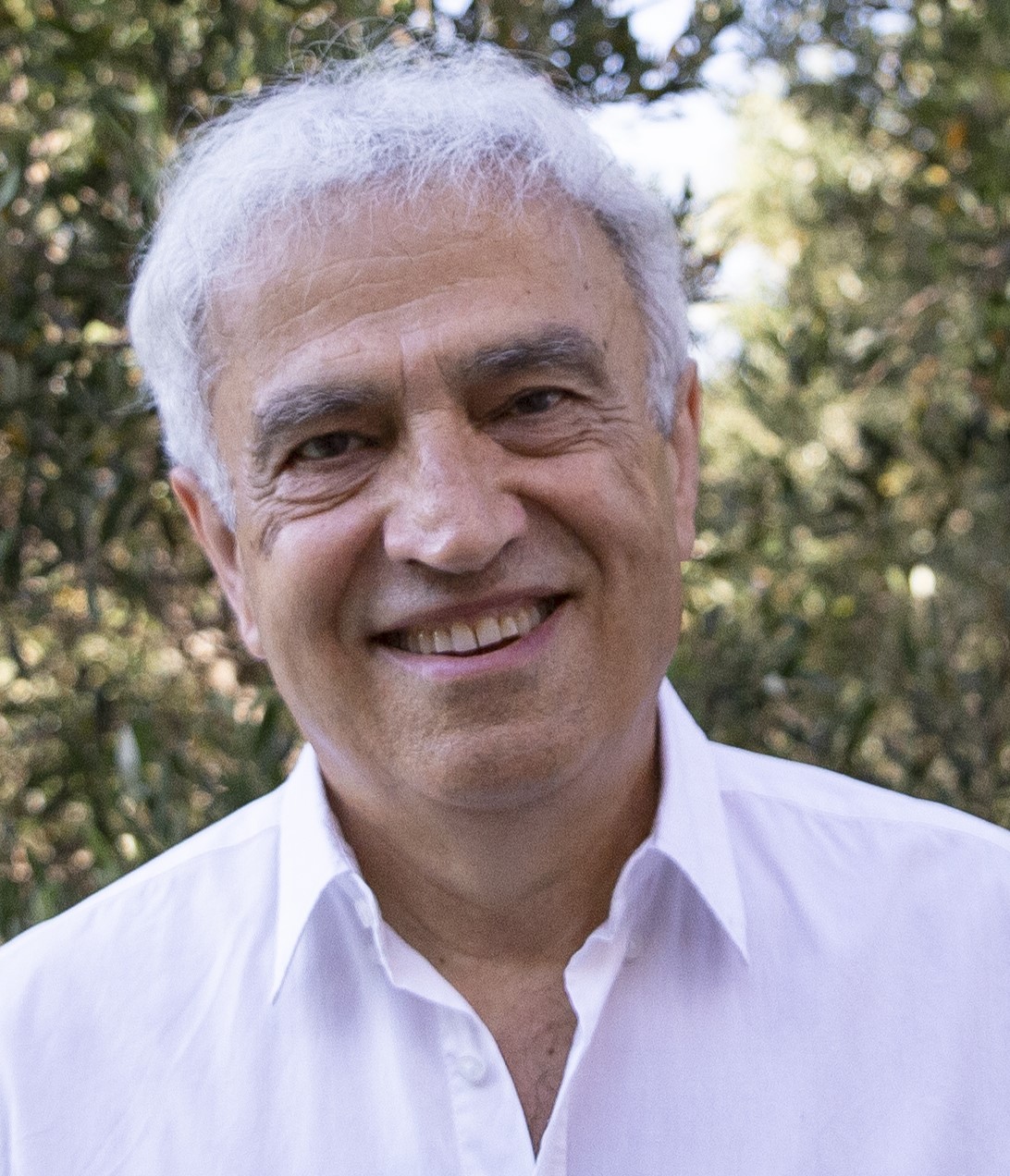
Yannis A. Phillis
WAC
Honoree
Keynote
Technical University of Crete
Greece
Download Flyer
On a mathematical theory of sustainability assessment and decision making
Abstract: Sustainability assessments of an entity, be it a nation, a city, an energy or a transportation system etc., rely on data to evaluate human welfare and environmental integrity. Each of these two fundamental components is a combination of more specialized indicators organized into various hierarchical levels. For example, the human dimension of sustainability encompasses socio-economic, technological and political aspects which are further elaborated using different groups of indicators. Most assessment models normalize indicators from their physical domains into a common interval representing a range from the lowest to the highest levels of sustainability. Most aggregation models utilize simple linear or geometric expressions to arrive at numerical values ranging from zero to one. Other approaches employ fuzzy reasoning or multicriteria techniques to do the same. However, no general theory has been developed to model sustainability assessments. In this talk such a theory will be presented based on certain intuitively appealing postulates. These postulates lay the mathematical foundations of a sustainability theory and lead to a simple model based on shifted geometric means combining basic sustainability indicators into an overall index. The model has a number of desirable properties and generalizes the commonly used weighted arithmetic and weighted geometric means. The model is augmented with a sensitivity analysis which pinpoints those indicators with the highest potential of improving sustainability, thus, providing decision-makers with an important tool to aid policies. Applications include sustainability assessments of countries, cities, energy, transportation, agriculture and corporations. Rankings and sensitivity analyses occasionally reveal surprising results such as unexpectedly low rankings of highly developed countries which demonstrate that sometimes development has no robust foundations.
Bio: Yannis A. Phillis is professor emeritus and former rector at the Technical University of Crete. He received his diploma in electrical and mechanical engineering from the National Technical University of Athens, Greece, in 1973 and the M.S., Engineer Degree, and Ph.D. degrees from the University of California at Los Angeles (UCLA) in control systems in 1978, 1979, and 1980 respectively. From 1980 to 1986, he was assistant professor at Boston University, Boston, MA. Since 1986, he has been with the School of Production Engineering and Management, Technical University of Crete, Chania, Greece where he was rector for 12 years and past director of the CAM Laboratory. In 1992 and between 2005 and 2007 he was visiting professor at UCLA’s Chemical Engineering Department. In 2008 he was Onassis Foundation Senior Visiting Fellow in the US. In 2013-2014 he was Prometeo Senior Research Fellow in Riobamba, Ecuador. His research interests are in stochastic control, manufacturing, sustainability, and climate change. Dr. Phillis is a member of the editorial board of several technical journals. He is the recipient of numerous honors among which Harry Kurnitz Literary Award at UCLA, 1978 and 1979; Professor of the Year Award at Boston University, 1986; Award by the Academy of Athens for creating the 80-acre Park for the Preservation of Flora and Fauna at the Technical University of Creter, 2007; Fellow of the Venizelos Research Institute in Greece, 2006; Awards by the Municipalities of Chania and Assini, Greece in 2005 and 2008 respectively for his service to society, science, and letters; Lifetime Achievement Award at the World Automation Congress 2010, Kobe, Japan; and Academic Alumni Professional Achievement Award, UCLA, 2013. He has published over 130 scientific papers, several technical books, and fifteen poetry collections and novels. He is an award-winning writer in Greece and the US. He is a Fellow of AAAS; Fellow of the European Academy of Sciences; Member of the European Academy of Sciences and Arts; Member of Poets and Writers, USA; and Member of the P.E.N. Club. Website: www.phillis.tuc.gr
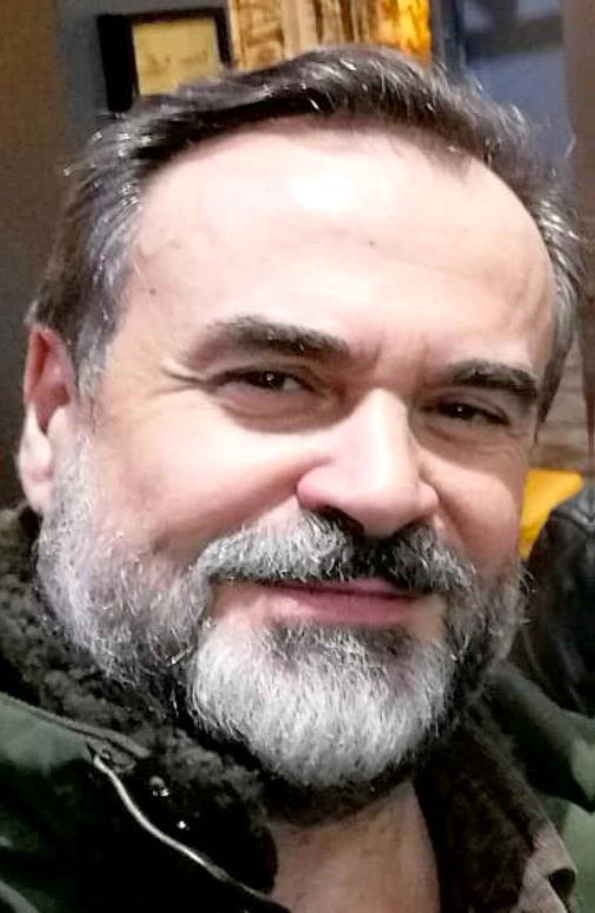
Diego Andina
WAC
Honoree
Keynote
Universidad Politécnica de Madrid
Spain
Download Flyer
Bio: Diego Andina (Full Prof., IEEE Senior Member), was born in Madrid, Spain, and works for Universidad Politécnica de Madrid (UPM), where he previously received two Master's degrees (1990) and a Doctorate with honors in 1995. He currently heads a Research Group interested in Interdisciplinary Applications of Artificial Intelligence, Biomimetics and System of Systems Engineering, receiving numerous international awards and recognitions for his novel contributions and business technology transfer proposals. He is author or co-author of more than 350 national and international publications, registered several patents and directed more than 60 R&D projects financed by National and Local Governments, the European Commission and private Institutions and Companies. He is also an associate editorial member of several top international research journals and transactions and has participated in the organization of more than 50 international research, innovation and technology transfer events. He is passionate about Entrepreneurship and Multidisciplinarity, having founded the Latin American Cooperation Network for Intelligent Automation and Control, the UNITOD Universitary Union and several Spinoffs at the National and International level.
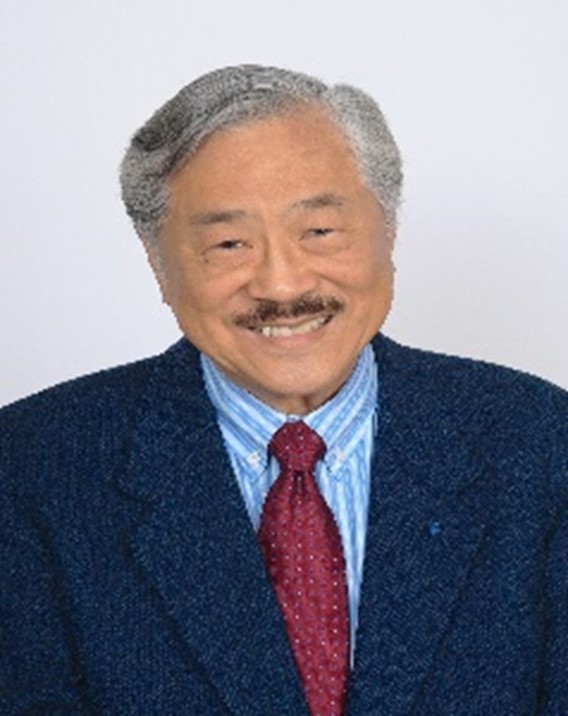
Prof. James M. Tien
WAC
Keynote
University of Miami
USA
Download Flyer
Fourth Industrial Revolution: Internet of Things, Real-Time Decision Making, Artificial Intelligence
Abstract: The post-COVID world economy continues to underscore the prominence of the disruptive and interrelated Big Data technologies of Internet of Things (IoT), Real-Time Decision-Making (RTDM), and Artificial Intelligence (AI), which, together, underpin the Fourth Industrial Revolution. IoT is generally considered to be a range of devices or systems, each with an Internet Protocol address. In earlier papers, the author defined such devices and systems as servgoods, or items that can be thought of as physical products enveloped by services-oriented layers that can render each product or good to be smarter, adaptable and/or customizable for a specific purpose. Indeed, the transmission of both information and power with greater bandwidth (i.e., data transfer capacity) and minimal latency (i.e., data delay) are critical to RTDM; it is based on an integrated system of computers that must perform critical decision-oriented functions in near real-time or within a time frame of as short as 67 nanoseconds, each encompassing the steps of sensing or data fusion, processing or data analysis, reacting or decision-making, and learning or feedback processing. Clearly, an IoT servgood – or, say, an autonomous vehicle – must be constantly sensing, processing, reacting, and learning. At present, the most critical Big Data component is AI, an evolving set of technologies that enable computers to simulate elements of human thinking, understanding, learning and decision-making. Central to AI is machine learning, an approach that is loosely modeled on the way layers of neurons and synapses in the brain change as they assimilate new input; sometimes, such deep learning may even result in a trained machine that can outperform their human counterparts. AI-based servgoods include virtual assistants that can understand natural language and appropriately respond; robots that can automatically carry out a complex series of tasks; medical devices that can assist with diagnostic and/or therapeutic decisions; and platforms that can allow users to employ pre-built decision-making algorithms. Finally, in a connected IoT, RTDM and AI world, there are ample opportunities for breaches of privacy and security; not only are the resultant servgoods vulnerable to being hacked but so are their various connected devices. Clearly, such breaches of security must be appropriately addressed by technical standards and government regulations.
Bio: Dr. Tien is currently Dean Emeritus of the College of Engineering at the University of Miami, Coral Gables, Florida. He received the BEE from Rensselaer Polytechnic Institute (RPI) and the SM, EE and PhD from the Massachusetts Institute of Technology (MIT). He has held leadership positions at Bell Telephone Laboratories, at the Rand Corporation, and at Structured Decisions Corporation (which he co-founded in 1974). He joined the Department of Electrical, Computer and Systems Engineering at Rensselaer in 1977, became Acting Chair of the department, joined a unique interdisciplinary Department of Decision Sciences and Engineering Systems as its founding Chair, and twice served as the Acting Dean of Engineering at RPI. Dr. Tien’s areas of research interest include the development and application of decision-making techniques. He has published extensively and has been honored with both teaching and research awards, including being elected a Fellow in IEEE, INFORMS and AAAS and being a recipient of the IEEE Joseph G. Wohl Outstanding Career Award, the IEEE Major Educational Innovation Award, the IEEE Norbert Wiener Award, and the IBM Faculty Award. In 2001, Dr. Tien was elected to the prestigious U. S. National Academy of Engineering.
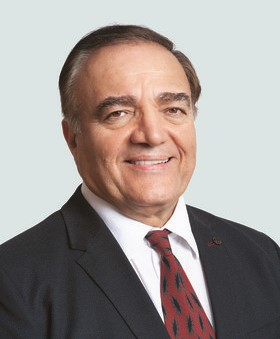
Fred Hadaegh
WAC
Honoree
Keynote
California Institute of Technology
USA
Download Flyer
Bio: Dr. Hadaegh is a Research Professor of Aerospace at Caltech. He earned his Ph.D. in Electrical Engineering from the University of Southern California in 1984, after which he embarked on a career at the NASA Jet Propulsion Laboratory (JPL), NASA’s lead center for robotic space exploration. Dr. Hadaegh held various technical and leadership positions at JPL for nearly four decades, including a member of the JPL senior leadership, of the Executive Council, and held the position of Chief Technologies until June of 2022. He was also the head of the Guidance and Control (G&C) Technology Program and the G&C Analysis and Group. In this capacity, he spearheaded cutting-edge research in guidance, estimation, and control theory while developing advanced algorithms and software for planetary science and astrophysics missions. He developed Guidance and Control technologies for spacecraft formation flying, autonomous rendezvous, and docking, playing a crucial role in various NASA missions and Department of Defense programs. Dr. Hadaegh has been the Principal Investigator for numerous R&D programs, research tasks, and flight experiments. His primary research interests revolve around optimal estimation and robust control of dynamical systems, with a particular focus on autonomous distributed spacecraft systems. Dr. Hadaegh has been recognized as a Technical Fellow and Senior Research Scientist at JPL and as a Life Fellow of the Institute of Electronics and Electrical Engineers (IEEE) and Fellow of the American Institute of Aeronautics and Astronautics (AIAA). His accolades include NASA's Exceptional Achievement and Exceptional Service Medals and JPL's Award of Excellence for "Flight Validation of Autonomous Rendezvous in Earth Orbit." Furthermore, he received AIAA's 2021 Mechanics and Control of Flight Award and the World Automation of Congress Award. His research contributions include mathematical modeling of uncertain systems, parameter identifiability of dynamical systems, identification, and control of large space structures, and autonomous control of single and distributed spacecraft systems.
Congress Fees
Paper fees:
- On-site Full Registration Fee: $500
- Early Registration Fee: $450
- Student Registration Fee: $300
- Extra paper by the same author fee: $250
- Extra page: $100 (maximum 2 extra pages per paper). Required to be paid at the time of uploading the final paper on EDAS
- Welcome Reception (Sunday): Included for all
- Banquet (Tuesday): Included for all